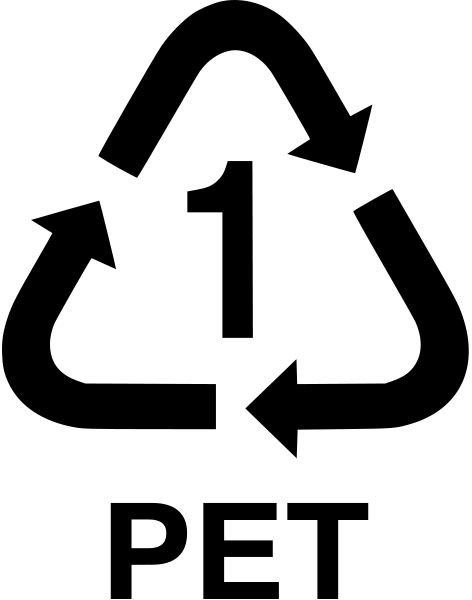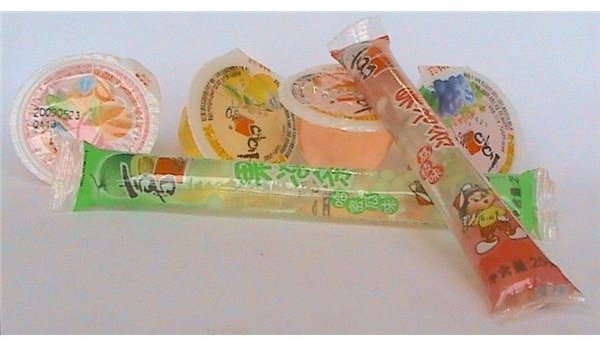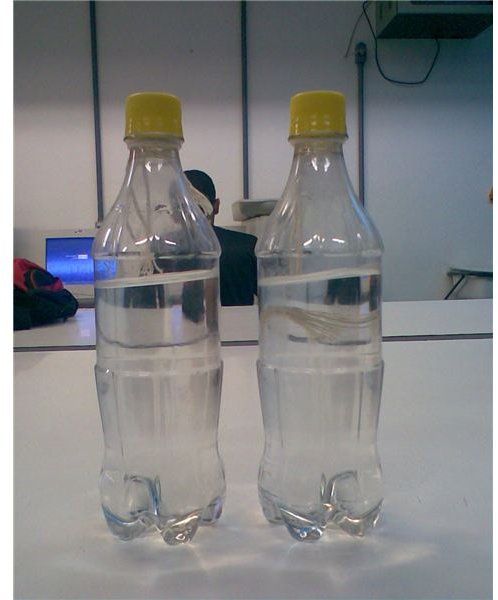Carcinogens in Plastics and the Safety of PET Water Bottles
The DEHA Scare
About a year ago, many became the recipients of e-mails, which contained warnings about the detrimental effects of re-using PET bottles. It later turned out, however, that the e-mail was purely a hoax yet its warnings about a supposedly cancer-causing substance created quite a scare.
Accordingly, the frequent washing and rinsing of the PET bottle will cause the chemical components to breakdown the carcinogenic agent DEHA. PET bottles are said to be good for a single use only and the maximum number of days to keep water stored is one week at the most. Otherwise, the broken down carcinogens will leach and contaminate drinking water.
The chemical compound DEHA or “diethylhydroxylamine” was tagged as among the ingredients used in the manufacture of PET bottles. However, the International Agency for Research on Cancer (IARC) has released its own findings about the said compound, which stated that " there is limited evidence that DEHA is carcinogenic to humans".
DEHA Refuted as a Toxic Chemical Ingredient

The International Bottled Water Association (IBWA) and the Food and Drug Administration (FDA) likewise debunked the scare over DEHA. Investigations regarding the hoax led to a graduate student’s thesis at the University of Idaho, which was fed and released to the media. The information spread like wildfire, causing detriments to PET bottle manufacturers and bottled water sellers as consumers became wary about the safety of plastic bottles.
According to the Food and Drug Administration (FDA), DEHA is neither classified as a carcinogen nor included in their list of regulated substances. In fact, the chemical compound is not even a raw material used in the manufacture of PET bottles. It is in no way present, not even as a by-product of the said bottles; hence, there is no reason to worry over the plastic’s decomposition. The administration also emphasized that PET bottles have been reviewed and tested as safe and meet the standards required for food contact materials.
DEHA, although a known plasticizer used in the manufacture of plastic items often used as lab equipment, was formerly included in the list of toxic chemicals under the Emergency Planning and Community Right-to-Know Act (EPCRA). It turned out, however, that EPCRA had already excluded DEHA in its list even before, owing to the fact that there is no evidence to support its toxicity as a carcinogen.
As a result, members of the media were reminded about the impropriety of using lab test results as bases for news information, especially if said results have not undergone peer reviews.
Nevertheless, the IBWA upholds the concept of using plastic bottles only once; not for carcinogenic reasons, but for matters of hygiene. Mouth contact to the bottle openings can easily transfer bacteria to the water content, which can subsequently contaminate both bottle and water. The contamination will result in bacterial growth in the water being kept in storage.
Nevertheless, some plastic bottles have been verified as detrimental to human health due to the toxicity of their raw material compositions and their capability to leach. Consumers should still be aware that there are certain types of plastic bottles that have contaminating components.
Beware of Food and Juice Drinks Packed in Plastic Bottles and Containers

In a more recent development, the World Health Organization stationed in China has warned its public and its neighboring countries about DEHP-tainted food products coming from Taiwan. In fact, a product-recall of more than 460,000 bottles of “Speed” sports and lemon juice drinks have been ordered, since test results show that they contain excessive amounts of DEHP. The list of DEHP-tainted food products is expected to grow, inasmuch as the suspected products include tea drinks, jams, syrups, tablets and powder.
The U.S. Environmental Protection Agency classifies DEHP or “Bis(2-ethylhexyl) phthalate” as Group B2, a probable human carcinogen. Its use as a plasticizer has long been banned in the U.S. particularly in the manufacture of toys and PVCs. Excessive contamination and exposure to this harmful ingredient are most probable by way of food and drinking water packed in plastic bottles that made use of DEHP.
In conclusion, it is important to know that only DEHA has been cleared as a carcinogenic ingredient because researchers have not established any direct links between the compound and cancer disorders. Yet bottle manufacturers still give warning about the safety of reusing plastic water bottles, including PET. Plasticized bottles that are used more than once, can promote bacterial growth and cause toxicity. The carcinogen in plastics, which consumers should watch out for is DEHP, a plasticizer used as ingredients in packaging materials for different food products.
References
- Image: Mat-500ml by Mecaleo / Wikimedia CCA-SA 3.0 Unported
- Image: Recycling pet by gov.go.jp/htmldata/H05/H05F03403003001.html / Wikimedia under public domain
- Image: Jelly snack from China by Anna Frodesiak / Wikimedia under public domain
- PlasticsInfo.org – “FAQs: The Safety of Plastic Beverage Bottles” – http://www.plasticsinfo.org/Functional-Nav/FAQs/Beverage-Bottles/default.aspx#4
- EPA.gov. Bis(2-ethylhexyl) phthalate (DEHP) – http://www.epa.gov/ttn/atw/hlthef/eth-phth.html
- By Li Yao (China Daily) – “Tainted Taiwan drinks ’not distributed” – http://www.chinadaily.com.cn/china/2011-06/01/content_12616189.htm
This post is part of the series: Dangerous Carcinogens
In this series, you will find information on the carcinogens around us that can be detrimental to our health. You will read about carcinogens in plastic bottles and in industrial manufacturing and how their exposure can affect our bodies, including those that may cause cancer.
